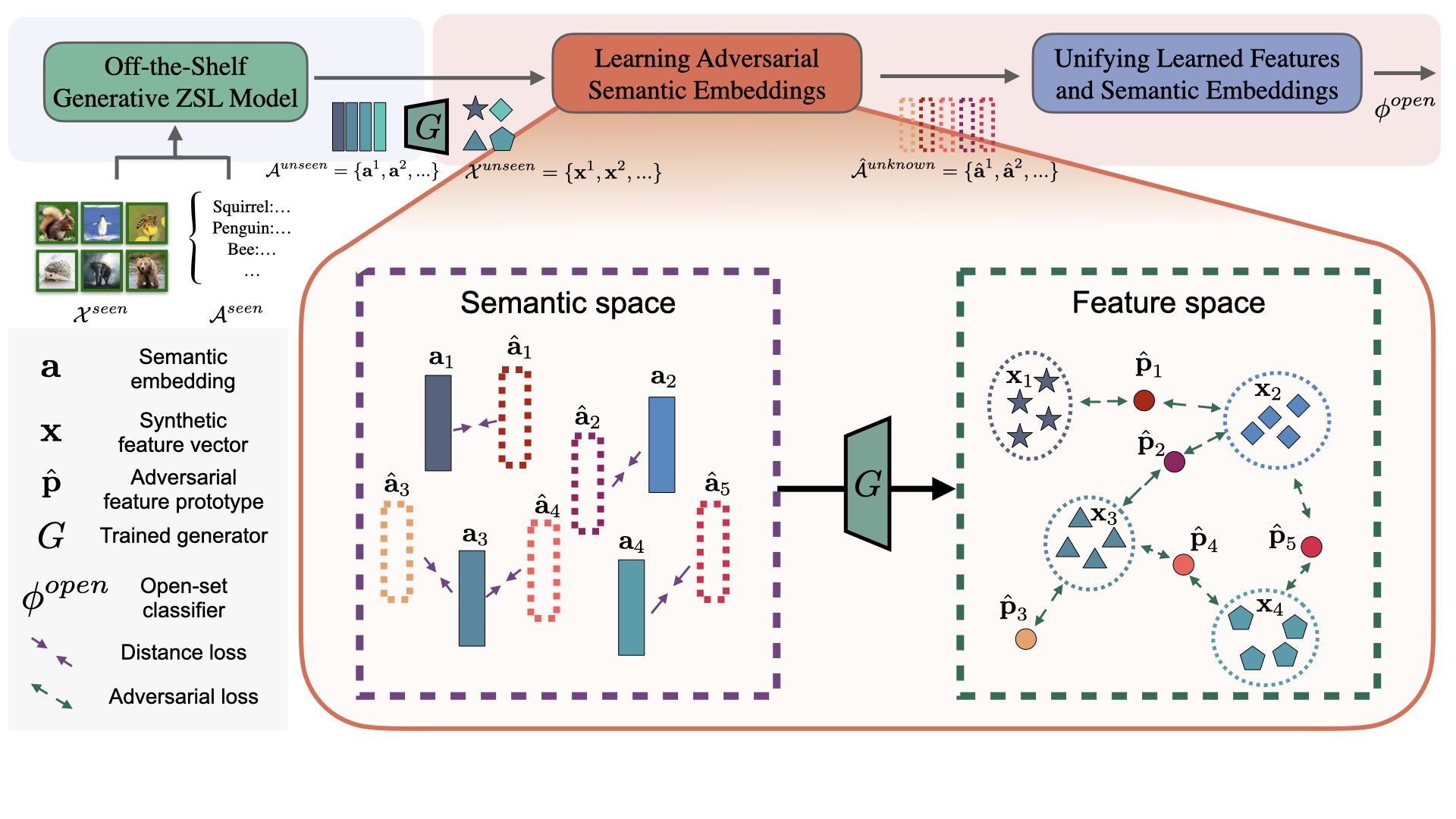Zero-Shot Learning (ZSL) focuses on classifying samples of unseen classes with only their side semantic information presented during training. It cannot handle real-life, open-world scenarios where there are test samples of unknown classes for which neither samples (\eg, images) nor their side semantic information is known during training. Open-Set Recognition (OSR) is dedicated to addressing the unknown class issue, but existing OSR methods are not designed to model the semantic information of the unseen classes. To tackle this joint ZSL and OSR problem, we propose a new yet important task dubbed ”Zero-Shot Open-Set Recognition” (ZS-OSR), where a model is trained under the ZSL setting but it is required to accurately classify samples from the unseen classes while being able to reject samples from the unknown classes during inference. We establish the performance benchmark of this new task by combining existing state-of-the-art ZSL and OSR models to perform the ZS-OSR task on four widely used datasets adapted from the ZSL task, and reveal that these simply combined solutions perform badly in distinguishing the unseen-class and the unknown-class samples. We further introduce a novel approach specifically designed for ZS-OSR, in which our model learns to generate adversarial semantic embeddings of the unknown classes to train an unknowns-informed open-set classifier. Extensive empirical results show that our method substantially outperforms the combined solutions in detecting the unknown classes without degrading the classification accuracy on the unseen classes.
Two environments need to be prepared, one for the training of TFVAEGAN and the other for the training of ASE.
For TFVAEGAN: (from the official Pytorch implementation )
conda create -n tfvaegan python=3.6
conda activate tfvaegan
pip install https://download.pytorch.org/whl/cu90/torch-0.3.1-cp36-cp36m-linux_x86_64.whl
pip install torchvision==0.2.0 scikit-learn==0.22.1 scipy==1.4.1 h5py==2.10 numpy==1.18.1For ASE:
conda create -n ASE python=3.8
conda activate ASE
pip install -r requirements.txt- Download ZSL datasets
Download CUB, AWA2, FLO and SUN features and attribute vectors from the drive link below (copy from the official Pytorch implementation of TFVAEGAN ) :
link: https://drive.google.com/drive/folders/16Xk1eFSWjQTtuQivTogMmvL3P6F_084u?usp=sharing
Extract them in the datasets folder.
- Extend datasets to ZS-OSR:
conda activate ASE
python datasets/generate_attribute_split.pyTraining TFVAEGAN models for four datasets
conda activate tfvaegan
python scripts/TFVAEGAN_train/run_cub_tfvaegan.py
python scripts/TFVAEGAN_train/run_awa_tfvaegan.py
python scripts/TFVAEGAN_train/run_flo_tfvaegan.py
python scripts/TFVAEGAN_train/run_sun_tfvaegan.pyThe trained model will be saved in the output folder.
[Method]=[Openmax, Placeholder, Energy, ODIN, LogitNorm, MaxLogit, ASE] .
[Dataset]=[CUB, AWA2, FLO, SUN] .
To evaluate ZS–OSR performace of a method on a specific dataset, run:
conda activate ASE
python scripts/[Method]/[Dataset]_[Method].pyTo evaluate generalized ZS-OSR performance of a method on a specific dataset, run:
conda activate ASE
python scripts/[Method]/[Dataset]_[Method]_gzsl.pyFor example, to evaluate ZS-OSR and generalized ZS-OSR performance of our method ASE on the dataset FLO respectively, run:
conda activate ASE
python scripts/ASE/FLO_ASE.py
python scripts/ASE/FLO_ASE_gzsl.pyThe performance of method MSP is shown together with ASE.
